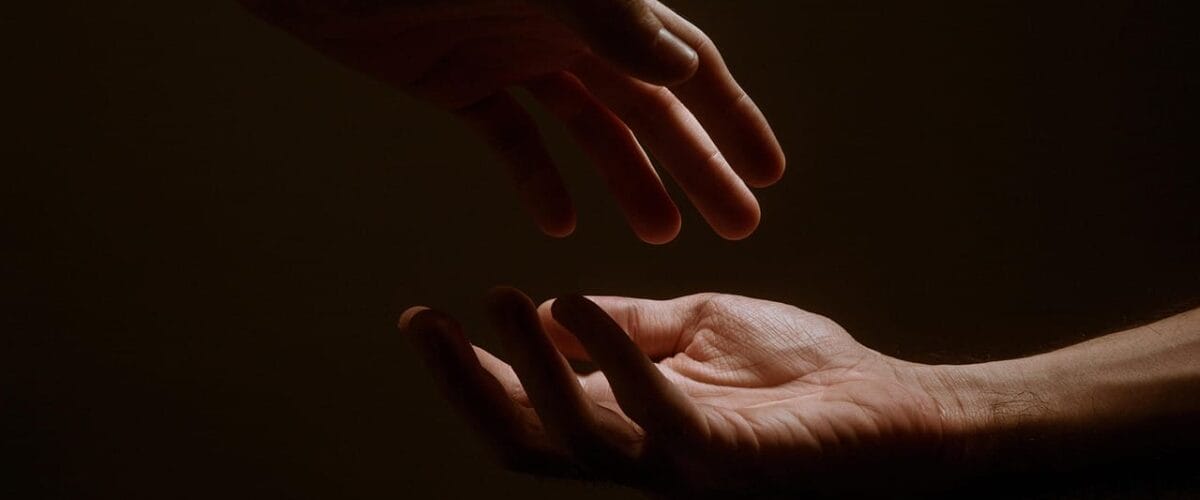I spent a significant amount of time discussing the conscience in Alive on the Inside, exploring its many complexities and blessings. As it turned out, I had too much to say. The extra material that didn’t fit into the book, I opted to use for posts like this one.
The conscience is a significant aspect of a human being’s inner life. Following the second birth by faith in Christ, it becomes an even more critical feature. In fact, ignoring it as a faithful Christian is unthinkable. Paul wrote about the necessity of “holding faith and a good conscience. By rejecting this, some have made shipwreck of their faith” (1 Tim. 1:19).
The light of God first reaches our conscience through the Word of God. That’s a major thesis in Alive. Light exposes our current spiritual condition not to humiliate and depress us but so that we can adequately respond and continue walking in blessed fellowship with God.
And yet, our reactions to an enlightened, troubled conscience are often harmful. We choose other routes that, instead of leading to joy, divert us into swamps of twilight. Oddly enough, we often don’t notice we’re making these decisions while we’re making them.
I’ve arranged them into categories:
Ignoring. This response says to the conscience, “I know it’s wrong, but I’m going to do it anyway.” When Christians descend into this state, they begin living like Pontius Pilate, who knew there was no wrong in Jesus, and even publicly confessed it multiple times, yet sentenced Him to death, anyway. In essence, this approach pretends that inner life does not exist at all. The process typically begins with our being uneasy as we approach a thing we know isn’t right, walling ourselves off from that feeling while we engage in the sin, and then later feeling miserable but trying to cheer ourselves up through various other means.
Burying. This reaction deals with sin by simply trying not to think about it. But, “Whoever conceals his transgressions will not prosper” (Prov. 28:13). Remember Achan, who thought he could hide the things he stole by burying them under the ground of his tent out of sight of everyone. Those who bury resign themselves to living with internal trouble, hoping time will make it better. Instead, time just makes it fester and possibly develop into emotional problems like depression and anxiety, heaviness, and irritability.
Self-justifying. This happens when we refuse to admit sin was in any way involved in our behavior and what we did was perfectly normal. In more outrageous forms, self-justification can involve altering the clear sense of Scripture in order to make room for sin to remain unaddressed. Scripture warns, “Woe to those who call evil good and good evil, who put darkness for light and light for darkness, who put bitter for sweet and sweet for bitter!” (Isa. 5:20). Under those circumstances, we can actually begin to believe the reverse of truth and develop an evil conscience, a conscience trained to go along with sin. Self-justification also often involves leveraging popular opinion to validate one’s behavior. Thus, hiding in the middle of “herd righteousness,” we reason, “How could it be wrong if everyone else is doing it?”
Avoiding. This reaction to a stricken conscience leads to staying away from the Bible, church, or anything connected to Jesus. King Ahab saw the prophet Elijah as a “troubler” (1 Kings 18:17) not because Elijah was the problem but precisely because the king was in such a state of rebellion to God. If the things of God become downright unpleasant, be warned. Jesus said, “Everyone who does wicked things hates the light and does not come to the light, lest his works should be exposed” (John 3:20).
Blaming. Aside from bald-faced denial, perhaps the most basic of all responses to a troubled conscience involves shifting responsibility to another person. Following the first sin ever committed, Adam blamed Eve, and Eve blamed the devil. That didn’t help anything. Of course, each of the three parties was guilty, something God was well aware of already. But shifting (or sharing) the blame only gives the false illusion of lessening your own burden of guilt. As an approach to dealing with the conscience, blame eventually gets around to faulting God, which was exactly what Adam did when he said, “The woman whom you gave me.” Other classic ways of putting this are You made me this way. You let that happen. Etc.
Bribing. This reaction deals with a guilty conscience by offering increased church attendance, extra Bible reading, additional volunteer service, or swearing off some other sin–all attempts at offering an olive branch to God. Saul tried to do this when he failed to keep God’s instructions to completely destroy the Amalekites and their property. He kept their sheep and then offered to use them as sacrifices to God. The prophet Samuel rebuked him, saying, “Has the Lord as great delight in burnt offerings and sacrifices, as in obeying the voice of the Lord? Behold, to obey is better than sacrifice, And to heed than the fat of rams. For rebellion is as the sin of witchcraft, and stubbornness is as iniquity and idolatry…” (1 Sam. 15:22-23a NKJV).
Performing. Legalism always tries to prove that the conscience needn’t be troubled since, as a Christian, you are praiseworthy in so many other areas. This self-righteousness frequently takes on rigorous forms of rule-keeping, such as with the Pharisees. They tithed ten percent from the smallest pile of herbs while being blind to godly requirements such as mercy, compassion, and marital fidelity. Personal performance often involves comparisons to others, like the Pharisee who saw a sinner from a distance and prayed, “‘God, I thank you that I am not like other men, extortioners, unjust, adulterers, or even like this tax collector” (Lk. 18:11). In such a way, self-righteousness can masquerade as a clear conscience but misses the point. We do not compare ourselves to ourselves, nor do we compare ourselves to others. Our standard is the light of God that shines through His Word.
Yes, there are more possibilities to list, but the point is, it all adds up to a whole lot of work. These games are exhausting. The darkness they generate is soul-withering.
What should we do instead? We simply and honestly bring our sins before God, where we encounter the blood of Jesus afresh.
“If we confess our sins, he is faithful and just to forgive us our sins and to cleanse us from all unrighteousness” (1 John 1:9)
Confession means you give up defending yourself or even pitying yourself. It would seem that is a terrible strategy, inviting certain condemnation.
But if you think so, read 1 John 1:9 again.
This is an updated edition of a post originally published on John Myer
Featured Image by Ben White on Unsplash




















[…] Open the full article on the kingdomwinds.com site […]